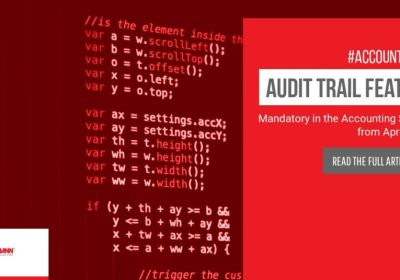Table of Contents

ASSESSMENT OF BUSINESS FOR FUTURE SUCCESS
BRIEF INTRODUCTION
In today’s world, internal audit has attained greater attention, with the growth and expansion in corporates and organizations. Many large enterprises and corporations choose to create their internal audit services and departments, training their employees. When deciding to conduct an internal audit, it's necessary to see its subordination to the audit committee of the board of directors or directly to the board of directors of the corporate.
In the latter option, the extent of independence of internal auditors from executive management is higher, which allows more efficient use of the potential of the internal audit system.
In the event that this feature isn't feasible, it's necessary to subordinate the internal audit unit to the senior official of the enterprise. At the same time, attention should be paid to the tasks that the inner audit system solves. If the first task is aimed toward implementing control and auditing activities, then you would like to decide on subordination to the highest executive management of the enterprise.
OBJECTIVES BEHIND AUDIT OF A COMPANY
Although the concept of auditing tends to come up with a touch of fear, the advantages that are achieved by auditing different areas of productive activity are numerous. Audit companies can do a lot for your business, they're an ally!.
The concept of audit refers to an analysis or examination that's administered on a specific system, a company, a product, or perhaps an individual. With this critical evaluation, a competent verdict is issued that's characterized by being neutral, it must be independent and not have influences of any kind. Normally, the foremost widely used audit concept is the one in charge of evaluating the financial statements of a corporation to understand its economic reality.
The best audit firms in Delhi dedicated to management are responsible of evaluating other companies in compliance with certain regulations, processes, or activities in several sectors included within their economic activity. Compliance with these regulations entails obtaining certifications, so they are very necessary to keep up them.
It is often believed that auditing companies are liable for finding guilty of errors or bad practices within the development of the productive activity. This belief implies that information doesn't flow as it should which there are certain pitfalls when collecting data for evaluation.
It’s nearly identifying what's wrong and not who is responsible. When faults are detected, it's usually known who the person behind it is in line with the task, but the main objective is to en sure that the procedures are being distributed under the provisions of the ISO standards
OBJECTIVES OF AUDIT FIRMS
When a high quality audit is meted out, the aim is to understand what's being done in the corporate and in what way and to compare it with what must be done and in what way. It is the basic step that auditing companies go for face the continual improvement process that's reflected within the ISO standards.
With a high quality audit, what's intended is:
• Identification of the possible deviations, being occurred, but ignored by the management.
• Analysis of the reasons, in respect of deviations that has already occured.
• Planning of corrective measures by the auditing companies and setting of recent objectives to be achieved with these measures.
• Implementation of the corrective measures determined above.
• Supervision of latest results.
• Determine new objectives once the case is normalized.
If within the first step no inconsistencies are detected with the adopted quality management system, it's not necessary to follow the method as everything is correctly implemented and with positive results.
In case of detecting anomalies, the follow-up by the audit companies must be more exhaustive to confirm that they're effectively corrected. For any company that carries out its activity, finding the correct provider of audit consulting services is something that may undoubtedly bring you excellent benefits. Its most vital benefit is the peace of mind it gives customers since with such a service you'll be able to take care that no irregularity is committed in your accounts, contracts, etc.
WHEN DOES A NEED FOR AUDIT ARISE?
An audit consists of the review, by an accounting expert, of the accounts of an organization to prove, before third parties, the reasonableness of the veracity and reliability of its content. The most common audit is the one that's meted out, compulsorily, on the company’s annual accounts and concludes, after review by the audit firm, with a report that manifests itself on said accounts, reasonably collecting truth image of the corporate.
Contrary to what many of us think, the target of an audit isn't to detect fraud- although within the course of the work they'll be evidenced, rather it intends to provide the social agents information on the correctness of the accounting information that the entity revised is posting.
PERFORMANCE OF AUDIT
As per the latest developments, being introduced by the Companies Act, 2013, the audit report is required to be signed by an independent audit firm established in India. The auditor doesn't work alone but includes a team of qualified professionals who, following the regulations established within the Audit Law, do fieldwork.
TYPES OF AUDITS
The most common audit is the mandatory audit of the annual accounts of a corporation. it's what mercantile companies are obliged to carry out, under the Law, once they exceed, for 2 consecutive years, following some parameters.
The audit of consolidated annual accounts is additionally mandatory when the parameters indicated for individual accounts are exceeded, during this case, multiplied by four. However, the audit of the annual accounts may be meted out voluntarily. Many are the businesses that do it as an exercise of transparency before third parties (investors, partners, banks, suppliers, etc.).
There also are other jobs performed by auditors that, not being audits themselves, have to use audit procedures and are regulated by the regulations on this matter. Kind of audits are as under :
-
Internal audit
-
External audit
-
Tax audit
-
Information system audit
-
Operational audit
-
Financial audit
-
Compliance audit
-
Forensic audit
-
Statutory audit
-
Value for Money audit
-
Agreed-upon procedures audit
-
Payroll audit
-
Pay audits
-
Integrated audits
-
Special audits : Special audits may investigate areas such as: Safety compliance, Construction, Hiring procedures, Fraud, Royalties, Taxes
INSTANCES REQUIRING AUDIT
In addition to compliance with the parameters indicated by the commercial legislation, which might cause the requirement to audit the accounts compulsorily, various reasons can lead an organization to audit its accounts. They can be voluntary, basically in search of transparency and reliability, or for other reasons established by law, as is that the case of listed entities, public offering companies, financial inter mediation companies, and a few insurance branches.
It should be considered that the provider of auditing services in Delhi goes to demand from the corporate and its staff the maximum collaboration and, for some weeks, the accounting-administrative department will collapse. additionally, to check it with the accounts, it'll request information about the corporate and its accounting balances from banks, advisers, clients, and creditors.
Finally, in those corporations or limited companies that aren't obliged to be audited, the partners with a stake of over 5% may request an audit. With the assistance of auditing and taxation services in India, they're going to achieve maximum transparency and reliability in their investment.

















